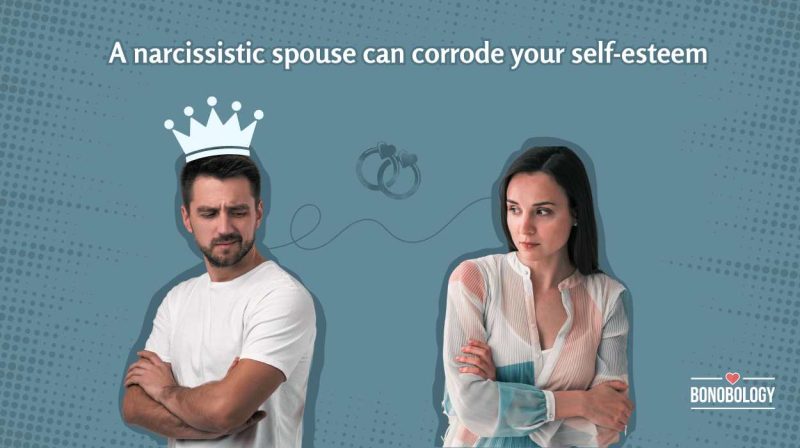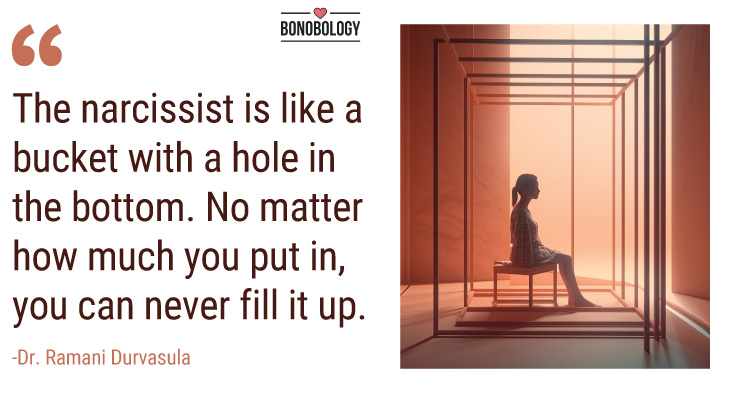A negative spouse can be difficult and emotionally taxing to deal with. When one partner continuously has a pessimistic outlook, it can affect both people’s general well-being and strain the relationship. However, this issue may be handled and steps taken toward a more constructive and happy connection with persistence, understanding, and efficient communication skills.
In this article, we’ll discuss how to deal with a negative spouse and how to create a happier, more upbeat dynamic in your marriage. By putting these suggestions into practice, you can transform your relationship and foster a supportive environment, encouraging self-reflection and open communication. Keep in mind that dealing with negativity involves work from both parties as well as dedication to practice empathy and bring in improvement.
Our expert, relationship coach Nandita Rambhia (MSc, Psychology), who specializes in CBT, REBT, and couple’s counseling, addresses the issues regarding negative spouses and provides her valuable tips to effectively deal with them.
What Is Negativity In Relationships
Table of Contents
You’ll often find people complaining, “My partner’s negativity is draining me.” Why does that happen? Relationship negativity is defined as a recurring pattern of criticism and a generally pessimistic view that can jeopardize both the partner’s emotional well-being and connection. It involves a mentality that largely concentrates on issues, flaws, and deficiencies. In such cases, people don’t look for solutions or value the relationship’s positive qualities.
We’ve often heard people crib, “My husband is always negative and angry” or “My husband is negative about everything.” Individual variables such as prior negative events, unresolved psychological problems, low self-esteem, or persistent stress can all contribute to negativity. Negative attitudes in the partnership might also be influenced by outside causes, such as financial struggles, stressful jobs, or health issues.
Related Reading: 30 Toxic People Quotes to Help You Avoid Negativity
Reasons why your spouse tends to be so negative
Nandita says, “Negative attitudes often stem from three main categories: self-directed negativity, where individuals lack self-esteem; negativity toward others, where they harbor mistrust or resentment; and global negativity, where a pessimistic outlook extends to the broader world. Understanding these categories can aid in addressing various underlying issues.”
Do you often find yourself googling, “How to live with a negative spouse?” It’s important to carefully assess a number of aspects in order to understand why your spouse tends to be pessimistic. We all know how taxing it is to deal with someone who always has something negative to say. Here are a few typical explanations for your spouse’s negative emotions:
- Past experiences: As a coping technique, people who have had traumatic, disappointing, or unsuccessful past experiences may adopt a pessimistic outlook on life
- Stress: Struggling with a cranky husband? If your partner is under a lot of pressure, it may affect their emotional condition and make them more negative
- Cognitive biases: Your partner may be biased in their thinking. If they have a negativity bias, it causes them to prioritize bad outcomes or occurrences above positive ones
- Unresolved issues: Unresolved personal or relationship issues can be a persistent source of dissatisfaction. They can also add to pessimism
- Mental health conditions: Sadness and anxiety can show up as constant signs of negativity, pointing toward an underlying mental health condition. Even subtle mental health issues can be a big problem in the long run
- Communication style: Your partner may naturally incline toward using a negative tone when speaking and expressing themselves. Silent treatment may or may not work here
- Environmental factors: Stress at work, money problems, or unpleasant living situations are examples of external influences that might have a detrimental impact on your partner and their mood
- Lack of coping skills: If your partner lacks the ability to deal effectively with the difficulties of life, they may automatically adopt a pessimistic outlook
- Personality traits: Pessimism and introversion are two personality traits that can contribute to having a more negative view
Addressing negativity in relationships requires open and honest communication, being more empathic, and a willingness to work together. It involves taking your spouse’s emotions into consideration and making a more positive and supportive atmosphere, challenging negative relationship thoughts and behaviors, and seeking professional help if necessary. By addressing negativity, couples can create a healthier and more fulfilling relationship based on trust, understanding, and mutual respect.
Nandita says, “When one spouse is influential, their partner might experience negative thoughts and a decline in self-esteem over time. This dynamic can be damaging to the relationship. Open communication, mutual support, and seeking professional help can contribute to addressing these challenges constructively.”

Signs Of A Negative Spouse
Negativity can be like an addiction. As their pessimistic outlook can affect the general dynamics of the relationship, any relationship with a negative person can be difficult and emotionally taxing. To properly handle the issue, it’s critical to be aware of the warning indications of a toxic spouse. Though occasional negativity is common, persistent negative behavior patterns can harm both partners’ mental well-being. Recognizing these signs will help you understand how to deal with a negative spouse, and take steps to create a happier and more meaningful relationship:
1. Constantly finding fault with their relationship
One can often find people saying, “My wife’s anger is destroying our marriage.” A negative spouse may regularly criticize and find faults with their mate. They are often primarily concerned with the drawbacks and hardly ever notice or value the advantages.
2. Pessimism
A negative spouse frequently maintains a pessimistic attitude on life and has a propensity to assume the worst in many circumstances. They always focus on obstacles rather than opportunities.
3. Blame game
The effects of constant criticism in a marriage aren’t good for either party. Shifting blame on others for one’s own unhappiness or discontent and complaining excessively are two ways that negativity can show up. Don’t take such negativity personally and don’t accept blame.
Related Reading: 6 Ways Bitterness Creeps Into Your Loving Relationship
4. Lack of appreciation
A negative spouse may find it difficult to express their appreciation for their partner’s efforts and gestures. They could take things for granted and overlook the benefits of the connection.
5. Emotional instability
Negativity can cause emotional instability, which can manifest as erratic moods, irritation, or explosive rage. These emotional changes may happen suddenly or over time.
6. Lack of growth
Negative people frequently oppose personal growth, reflection, and initiatives to better themselves or the relationship. They may be hesitant to ask for assistance or consider alternative viewpoints.
7. Withdrawal
A negative spouse may withdraw emotionally, grow distant, and isolate themselves from the relationship. They could withdraw themselves or shun social situations, which makes the partner feel lonely.
How To Deal With A Negative Spouse – 15 Expert-Backed Tips
If you often find yourself saying, “My partner’s negativity is draining me,” then keep reading. The entire well-being of the relationship can be negatively impacted by having a negative spouse. In most cases, just one single negative interaction all day can be such a drag.
We have collated 15 expert-endorsed suggestions on how to deal with a negative spouse. These suggestions cover methods for establishing a better and more upbeat relationship, including communication, empathy, setting boundaries, and self-care in a relationship with a negative person. If you’re married to a negative person, you will have a happier and more rewarding relationship by putting these techniques into practice, you may work to enhance both your and your spouse’s emotional health.
1. Understand their perspective
By empathizing with your spouse, you strive to put yourself in their shoes and gain insight into the reasons behind their negativity. If they feel stressed, it could be related to past experiences or other personal factors. Understanding their perspective helps you approach the situation with more empathy and compassion, fostering a deeper connection.
2. Encourage open communication
Nobody likes it when their spouse gets tremendously upset by trivial things. Creating a safe and non-judgmental environment is crucial for effective communication. Both you and your spouse should feel comfortable expressing your feelings, concerns, and frustrations, without the fear of criticism or defensiveness. Active listening involves paying attention, clarifying, and responding empathetically to your spouse’s words, demonstrating that you value their perspective.
Nandita explains, “With care and sensitivity, you can guide a negative spouse to perceive situations differently. By offering alternative perspectives gently, you may help them reframe their outlook, promoting a more positive mindset and healthier interactions within the relationship. Effective communication can play a pivotal role in promoting understanding and emotional well-being.”
Related Reading: 9 Ways To Deal With Relationship Anxiety – Tips From Experts
3. Focus on the positive
How to stay positive around a negative spouse? So, dealing with someone with negative thinking is no joke, and their negativity often stems from a habitual focus on problems or shortcomings. Encourage your spouse to shift their attention to the positive aspects of their life and your relationship. Celebrating small wins, expressing gratitude, and acknowledging the good things in your spouse’s life can gradually reshape their mindset and promote a more optimistic outlook. Ask them to curb their negative thinking.
According to research, “5:1 is the magic ratio of positive-to-negative interactions.” John Gottman, an American psychologist and Professor Emeritus of Psychology at the University of Washington, states the same in his balance theory. According to John Gottman and his colleagues this means that for every one negative feeling or interaction between partners, there must be five positive feelings or interactions. So, focus on the positive bits.

4. Be supportive
Confused about how to deal with a bitter wife? Lack of support is one of the effects of constant criticism in a marriage. Let your spouse know that you are there for them. Here’s how you can do that:
- Express availability: Expressing your availability can help your partner know that you are there for them and are prepared to offer both emotional and practical support
- Validate feelings: In order to show empathy, validate your spouse’s emotions and experiences. Additionally, acknowledge their suffering and let them know you are aware of their struggles
- Commitment and reassurance: Reiterate your commitment to the marriage and your readiness to overcome obstacles as a team by following the motto “Commit to Partnership.”
- Promote positivity: Acknowledge that your assistance can provide a safe and comforting environment that will eventually assist your partner switch to a more positive outlook and healthier marital dynamics
Your support can provide a sense of security and comfort, enabling them to gradually adopt a more positive mindset. Nandita suggests, “Displaying compassion, persistence, patience, and recognition can be instrumental in dealing with a negative spouse. These qualities demonstrate understanding, determination, and empathy, creating an environment where the negative spouse feels valued and supported, potentially leading to improved communication and a more positive outlook over time.”
Related Reading: 12 Signs You Are Walking On Eggshells In Your Relationship
5. Set boundaries
People often seek help on how to live with a negative spouse. While it’s important to be supportive, it’s equally crucial to establish healthy boundaries to protect your emotional well-being, especially if you’re living with a negative spouse. Communicate your needs and let your spouse know how their negativity affects you. Boundaries help ensure that they feel overwhelmed themselves and don’t consume your own positivity. Find a balance between being supportive and taking care of yourself.
Nandita says, “When dealing with a negative spouse, it’s important to define your boundaries clearly, ensuring the preservation of self-respect. While showing empathy to their struggles, remember that maintaining your own emotional well-being is equally important.
“Spending time in positive relationships and social circles can offer a supportive environment for personal growth. Constructive interactions with optimistic individuals provide a counterbalance to the challenges posed by your spouse. This approach empowers you to see through the complexities of the relationship with grace, self-assurance, and a balanced perspective.”
6. Encourage self-reflection
Dealing with a negative spouse? Help your spouse recognize and reflect on their negative patterns and behaviors. Encourage them to explore the impact their negativity has on themselves and the relationship. Through self-awareness, they can begin to understand how their mindset and behavior contribute to the overall dynamic. This self-reflection can serve as a catalyst for change and motivate them to adopt a more positive outlook.
7. Seek professional help
Do you constantly think, “My husband is negative about everything”? Well, if the negativity persists and significantly affects your relationship, and you’re left wondering how to deal with a negative spouse, it may be beneficial to seek assistance from a mental health professional or marriage counselor. They’ll tell you how to deal with a miserable spouse. These professionals are trained to guide you through challenging situations and facilitate constructive conversations. They can provide insights, strategies, and techniques to help both you and your spouse navigate the negativity and work toward a healthier relationship.
Nandita says, “Seeking professional help should be considered a valuable option when dealing with a negative spouse if your efforts to improve the situation through open communication, empathy, and personal boundaries have proven consistently ineffective over a significant period.
If the negativity is severely impacting your mental and emotional well-being, causing distress, and straining the relationship to an irreparable extent, it may be time to involve a therapist or counselor. Their expertise can provide unbiased insights, effective strategies, and a safe space for both partners to address the underlying issues and work toward healthier dynamics. Remember, seeking professional help is not a sign of failure but a step toward resolving challenges.”
8. Foster a positive atmosphere
Wondering how to deal with a negative spouse while at home? Create an environment at home that promotes positivity and upliftment. Engage in activities that bring joy and laughter into your lives. Plan fun outings, watch funny movies or shows together, enjoy life, or engage in hobbies and interests for couples. This helps create positive memories and reinforces a more optimistic atmosphere within your relationship.
9. Practice gratitude
How to shut down a negative spouse? Living with a negative spouse can be quite a task. But cultivating a habit of expressing gratitude can significantly shift the focus from negativity to appreciation. Encourage your spouse to actively focus on the good things in their life and the positive aspects of your relationship. This can be done through daily conversations or keeping a gratitude journal. Regularly expressing appreciation for each other’s qualities, actions, and efforts strengthens the bond and fosters a more positive mindset. Take a look at some ways on how to be less critical of your partner:
- Recognize your tendency to criticize and practice mindfulness when speaking to your partner
- When you want to criticize, pause for a second and gather your thoughts before speaking
- Instead of obsessing on your partner’s faults, pay attention to their positive traits and strong points
- Use ‘I’ words rather than accusations or criticism to calmly and respectfully communicate your wants and concerns
Related Reading: 9 Consequences Of Staying In An Unhappy Marriage
10. Encourage self-care for your negative spouse
Who likes grouchy husbands? We don’t, and neither should you. Promote self-care activities for both yourself and your spouse. Here are some tips:
- Encourage them for physical activities: Encourage them to engage in activities that promote their own well being, such as pursuing hobbies, regular exercise, meditation, or engaging in activities that help them relax and recharge
- Create realistic goals: Assist them in creating manageable objectives to help them feel more accomplished
- Create a calm environment: Make your home’s atmosphere calmer. Make a cozy atmosphere, put on some relaxing music, or light some candles
Taking care of oneself physically, mentally, and emotionally can contribute to a more positive mindset and overall happiness. Steer clear of any negative thoughts.
Nandita suggests, “Gently introduce self-care to your negative spouse. Discuss its benefits and how it can improve their well-being. Offer support in exploring activities that promote positivity and relaxation. Emphasize that self-care can enhance their ability to cope with challenges and contribute to a healthier relationship dynamic.”

11. Challenge negative thoughts
Help your spouse become aware of their negative thoughts and beliefs, while conserving your own energy. Here are some tips:
- Encouragement counts: Encourage them with positive interactions and compliments
- Make them think: Question the validity of these negative thoughts and consider alternative perspectives
- Show them the bright side: Teach them how to reframe negative situations by focusing on potential solutions and opportunities for growth rather than getting stuck in a cycle of negativity
This process of cognitive restructuring can help shift their mindset toward a more positive and constructive outlook.
12. Lead by example
Do you often find yourself saying, “My husband is always negative and angry”? Be a positive role model by maintaining an optimistic attitude while dealing with a negative spouse. Stay positive and show your spouse the benefits of positivity and how it can improve your relationship and overall happiness. Demonstrate resilience in the face of challenges and respond to negative situations with a positive and proactive mindset. Your positive attitude can inspire and motivate your spouse to adopt a similar approach.
Nandita suggests,”Lead by consistently showcasing positive behaviors, communication, and emotional regulation. Demonstrate empathy, active listening, and resilience in the face of challenges. Cultivate a supportive environment by practicing self-care, setting boundaries, and encouraging their efforts. Your actions can inspire and influence your spouse’s mindset and behavior positively over time.”
13. Build a support network
Ever wondered what can sound like magic words to a negative person? Well, nothing but a simple “I’m here for you.” Whenever your spouse is feeling negative, encourage them to connect with friends, family, or support groups. Let them share their experiences and find support from others who have faced similar challenges. Having a support network provides them with an outlet to express their feelings, gain different perspectives, and receive encouragement. It can also reduce feelings of isolation and provide a sense of belonging.
Related Reading: 21 Signs Your Man Has Anger Issues And How To Cope
14. Celebrate progress
Acknowledge and celebrate any progress your spouse makes in adopting a more positive mindset. Positive reinforcement is a powerful tool for behavioral change. When you notice your spouse making efforts to challenge their negative thoughts or engaging in more positive behaviors, express your appreciation and highlight their growth. Celebrating progress reinforces their motivation to continue on the path toward positivity.
15. Maintain self-care
If you’re still wondering how to shut down a negative spouse, let us tell you that taking care of your own emotional well-being is crucial throughout this process. Engage in activities that recharge and energize you. Seek support from friends or family members, or consider therapy sessions or counseling for yourself if needed. By prioritizing your own self-care, you ensure that you have the emotional resilience and energy to support your spouse effectively.
Nandita says, “Practicing self-care when dealing with a negative spouse is essential for your well-being. Prioritize your needs without guilt. Set boundaries to protect your emotional space. Engage in activities you enjoy, connect with supportive friends, and consider counseling. Remember, taking care of yourself enables you to better navigate challenges and maintain a healthy perspective.”
Key Pointers
- Negativity in relationships refers to a persistent pattern of behavior, attitude, or communication that creates a hostile, unsupportive, or unhealthy atmosphere within the relationship
- Signs of negativity include blaming each other for problems and engaging in hostile communication, such as yelling, name-calling, or making sarcastic remarks
- A negative spouse often complains, criticizes, avoids taking responsibility, and makes conflict resolution difficult
- Dealing with a negative spouse requires setting boundaries, focusing on the positive, patience, communication, and professional help
It might be difficult to deal with a negative partner, but with the appropriate approach and techniques, it is possible to build a more meaningful and positive relationship. The 15 expert-endorsed solutions in this article offer help for resolving this predicament. You may create a secure and encouraging environment for both you and your spouse by engaging in empathy, supporting open communication, and establishing appropriate limits.
Addressing the underlying causes of their negativity can be facilitated by encouraging positivity and self-reflection. If necessary, you can opt for professional assistance too. Making self-care a priority also guarantees your own emotional health during the procedure. Keep in mind that change takes time and that both partners must be patient, understanding, and committed to improving their bond.
11 Things That Happen When A Woman Loses Interest In Her Husband
Your contribution does not constitute a charitable donation. It will allow Bonobology to continue bringing you new and up-to-date information in our pursuit of helping anyone in the world to learn how to do anything.






















Featured
50 Questions For Premarital Counseling To Prep For Marriage
Why Is Marriage So Hard? Reasons And Ways To Make It Worthwhile
15 Signs Of Being Married To A Narcissist And How to Cope
Building Healthy Boundaries: The Key to Trust and Respect in Relationships
What Is A Codependent Marriage? Signs, Causes, And Ways To Fix
7 Signs You Have A Verbally Abusive Wife And 6 Things You Can Do About It
Emotional Dumping Vs. Venting: Differences, Signs, And Examples
Husband Wife Relationship – 9 Expert Tips To Improve it
12 Hurtful Things You Or Your Partner Should Never Say To Each Other
7 Expert Tips To Resolve Conflict In A Marriage
Rediscover The Spark: How To Fall Back In Love With Your Partner
3 Key Skills To Save Your Marriage & Stop Divorce
Roommate Marriage – Signs And How To Fix It
What To Do When Your Husband Belittles You
How To Deal With A Lying Husband?
Why Am I So Depressed And Lonely In My Marriage?
11 Signs You Have A Narcissistic Wife
21 Signs Of A Narcissistic Husband And How To Cope
7 Fundamentals Of Commitment In A Marriage
17 Positive Signs During Separation That Indicate Reconciliation